- Administrator
- Albums and Singles
Ohio-based noise veteran Mike Shiflet’s decomposed visions were put into crystal clear focus on 2011's Sufferers, and Merciless is that record’s seismic companion piece. Shiflet's expertise in the field of experimental noise music has been shown on a whole host of albums, collaborations and hyper-limited releases but has rarely been framed so succinctly as on this duo of records.
Continuing Sufferers’ exploration into grim, teeth-chattering tape manipulation and drone we are introduced to the landscape of Merciless with the hospital-room grind of "Feeble Breaths," a dense slab of guitar plucks, compressed air coughs and dentists drill squeals. These sounds are crafted into grit, drone and white noise to create a slowly shifting dense wall of oddly familiar sound. It isn't all doom and gloom however, as Shiflet manages to show his tender side on the meltingly epic "Exodus and Exile" which might be his most beautiful composition to date. A cascade of synthesizer tones that echo the most haunting moments of Ligeti or even Arvo Part, this is somehow all underpinned by a sense of imminent dread. A dread which Shiflet cashes in on the album's title track, an extended collaboration with noise superstar C Spencer Yeh, who matches his signature violin abuse with Shiflet's shimmering electro-acoustic treatments.
Merciless is an unrelenting piece of work, and all the better for it. Let it sink in and prepare to have your mind prized open, you won’t regret it.
More information here.

Read More
 As Julia Holter's second full-length in less than 8 months, Ekstasis has a good deal of anticipation on its shoulders. Last year's Tragedy was her big splash into the experimental music pond, packed with high-brow conceptualism that made perfect sense given her academic background in electronic composition. On Ekstasis, Holter steps into the spotlight with an entirely different take on her sound.
As Julia Holter's second full-length in less than 8 months, Ekstasis has a good deal of anticipation on its shoulders. Last year's Tragedy was her big splash into the experimental music pond, packed with high-brow conceptualism that made perfect sense given her academic background in electronic composition. On Ekstasis, Holter steps into the spotlight with an entirely different take on her sound.
- Administrator
- Albums and Singles
 As Julia Holter's second full-length in less than 8 months, Ekstasis has a good deal of anticipation on its shoulders. Last year's Tragedy was her big splash into the experimental music pond, packed with high-brow conceptualism that made perfect sense given her academic background in electronic composition. On Ekstasis, Holter steps into the spotlight with an entirely different take on her sound.
As Julia Holter's second full-length in less than 8 months, Ekstasis has a good deal of anticipation on its shoulders. Last year's Tragedy was her big splash into the experimental music pond, packed with high-brow conceptualism that made perfect sense given her academic background in electronic composition. On Ekstasis, Holter steps into the spotlight with an entirely different take on her sound.
In the same way Tragedy was Julia Holter's big artistic statement, Ekstasis is her big pop statement—a sprightly collection of ten crystalline, melodic, easily approachable songs. One listen to both albums back-to-back, and the differences are stark: with Ekstasis, Holter sands off the rough edges from Tragedy's labyrinthine song structures, obtuse drone and instrumental passages, and near-complete lack of earworm hooks. Given that I consider Art and Pop to be complimentary facets of the same gem ("Art Pop"), Ekstasis sounds like a natural extension of Holter's talents, if a surprising left turn given how difficult a listen Tragedy could be at times.
Ekstasis is centered on Holter's layered vocals and fluid, melodic keyboard playing. Nearly every song has a passage that is catchy, immediately hummable. Ambient sounds are now folded into traditional song structures, rather than featured in equal or greater measure to pop moments. Instruments that were prominently featured on Tragedy, like saxophone, are pared back to emphasize Holter's keyboard and vocal prowess, which is accentuated by her current three-piece live setup. (NPR recently streamed her debut NYC performance live from Le Poisson Rouge; I'll admit to tuning in from Texas and being utterly transfixed.) In short, Ekstasis is easy to love from the first spin; there is no steep listening curve. For anyone new to Holter's music, this is an obvious entry point into her sound-world.
Sequencing is key; Holter kicks off the album with three of its strongest melodies. "Marienbad" opens with her voice layered onto itself in a deceptively simple melodic sequence, as delicate as tiptoeing in fresh snow. When the full melody unfolds at the two-minute mark, it feels like watching a time-lapse video of a flower blooming in third grade science class—a cycle of beauty coming and going with each day's sun. Trumpets accent the song's stately charm. "Our Sorrows" lives up to its name, with its central melody more resigned, sorrowful, like a sigh transmitted onto sheet music. "In the Same Room" is one of the album's most lovable pieces, segueing into the mostly instrumental "Boy in the Moon" and vaguely Eastern-tinged "Für Felix" to close out the album's first half.
Side two begins with an initial reprise of Tragedy's great centerpiece, "Goddess Eyes," reframed in a choral music context, as if sung by a small choir comprised entirely of Holters. After floating through two more ambient pop gems, including the glimmering, underneath-the-stars glow of "Moni Mon Amie," "Goddess Eyes" is again reprised, this time sounding more like the vocoder-ized version from Tragedy. In its two appearances on Ekstasis, however, its context among other straightforward songs on a pop-leaning album makes it less of a focal point than on Tragedy. While "Goddess Eyes" is essentially one catchy refrain played out to lovely effect, there are stronger songs on Ekstasis. By my judgment, "Four Gardens" and "In the Same Room" are knockouts by comparison; if they don't contain quite as memorable a single lyric ("I can see you, but my eyes are not allowed to cry"), they make up for it in sheer melodic content and overwhelming emotional pull.
There are no ambitious underpinnings like on Tragedy, which based its song cycle on Euripedes' ancient Greek play Hippolytus—a bit overly conceptual for my tastes. Because of its sequencing, which leans toward melody at the start, then intersperses key passages of ambience within the songs' melodic centers (and vice versa), Ekstasis feels like it has a natural start, middle, and end, like the narrative arc of a novel. It's not terribly difficult to find reference points for what Holter is doing with her music, yet it feels utterly fresh, like she's combined elements of so much music that I love—Kate Bush's most abstract work, Cocteau Twins, Broadcast (R.I.P.), Stars of the Lid, Grouper's rare sun-kissed moments, Julianna Barwick, Mark Hollis' one perfect solo album—and fashioned them into her own distinct sound. (I'm sure Holter would cite entirely different reference points if pressed, but that's my two cents.) Ekstasis is a major step for Holter—perhaps not a step forward or backward, but a sidestep, a bold change in direction; an impressive move in today's fickle musical landscape.
Samples:
Read More
- Administrator
- Albums and Singles
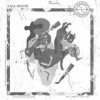 Julia Holter's debut is finally in prime position to reach a wider audience; given the broad appeal of her 2012 album, Ekstasis, to the NPR listening set, Tragedy has been graciously granted a CD pressing. If anything, the pop leanings of Ekstasis reinforce the otherworldliness of Tragedy, which remains a world all its own, conceptually daunting, rich in texture but a difficult entry point into Holter's music.
Julia Holter's debut is finally in prime position to reach a wider audience; given the broad appeal of her 2012 album, Ekstasis, to the NPR listening set, Tragedy has been graciously granted a CD pressing. If anything, the pop leanings of Ekstasis reinforce the otherworldliness of Tragedy, which remains a world all its own, conceptually daunting, rich in texture but a difficult entry point into Holter's music.
Night School (CD) / Leaving (LP/digital)
Tragedy opens with "Try to Make Yourself a Work of Art," which incorporates gently oscillating electronics, mournful strings, and static ambience that rises and falls like an ocean tide. There are occasional swells of guitar drone and Julia Holter's wordless vocals float in and out of the mix like a specter, sometimes indistinguishable from the machines fluttering around it. Halfway into the song, an insistent pulse draws a melodic frame for Holter's words, quoting from Euripedes' Greek play Hippolytus: "Try to make yourself a work of art like me / you can't / see? / only me." Clattering percussion rises up around her voice: "What your mind, so sound and safe, cannot know / this was my plot." In its final minute, the song fades back to gentle ambience, then silence.
If this sounds conceptually ambitious, even a bit overwrought, well, it is. Tragedy is a collection of songs that are such an artistic stretch for Holter, especially for her first full-length LP, that the album is simultaneously charming, captivating, and overreaching. Upon its release last August, the album generated so much hype in underground music circles that it topped Boomkat's end-of-year list, selling out its initial 500-count LP pressing in mere days. (A second pressing this year sold out even faster.) Holter has now released her second album—this year's pop-oriented Ekstasis—and I doubt she will venture back to the grandiose, left-field drama of Tragedy in future years, given her newer album's steps toward melodic accessibility.
As the album continues, "The Falling Age" begins with light-as-air vocals that sound nicked from Julianna Barwick's The Magic Place (one of last year's great overlooked albums) before dissolving into a long stretch of processed strings and Type Records-worthy drone. "Goddess Eyes" is Tragedy's lone pop moment, filtering its most memorable lyric ("I can see you, but my eyes are not allowed to cry") through a Daft Punk-style vocoder, looping it in the background while Holter intones another line from the scene of Hippolytus' fall over and over: "But in your dying you are dear to me." As a doorway into Holter's world, "Goddess Eyes" is flawless, so much so that she reprises it—twice!—on Ekstasis, where it sits well among that album's more conventional songs, but is not quite as perfectly framed as on Tragedy. In a sense, "Goddess Eyes" is Holter doing her best Kate Bush, next to the album's broader Laurie Anderson brushstrokes.
After "Goddess Eyes," Tragedy dives headlong into texture and mood pieces, offering no respite from Holter's artiness, but widening her instrumental palette. "Celebration" adds what sounds like harp (harpsichord?) and some of the most heavenly piano textures I've ever heard, folded into a 12-minute song that remains as much ambience as songcraft. "So Lillies" sees Holter twisting her vocals into loops and layers over a bed of field samples (birdsong, running water, and sampled speech) before a gentle techno pulse and harpsichord take over. "Finale" begins with rich pipe-organ chords before Holter builds up a massive chorus of looped, angelic vocals bit by bit, like an aural Tower of Babel stretching ever heavenward. It's a beautiful ending to a difficult album, incorporating melody and texture through familiar instruments like piano, saxophone, and Holter's fluttering voice.
Music this meticulously crafted and planned out, backed by a concept based around a Greek drama, is tailor-made for listeners to draw lines in the sand. In a behind-the-scenes discussion between Brainwashed writers, one person commented that Tragedy offers "enough seemingly deranged and self-sabotaging artistic decisions to keep [him] entertained." Another disagreed: "No one thinks Holter sounds suspiciously like Enya? A lot of music tows the New Age line but Holter is ridiculous. She should just cover "Sail Away" and be done with it." Either way, given the LP pressing's initial scarcity, I'm willing to bet that Tragedy was talked about more than listened to in 2011. Given its new CD pressing, it deserves listening from the broader audience now discovering her music—love it or hate it.
Samples:
Read More
- Administrator
- Albums and Singles
 Curiously, Jon Porras' second solo album does not sound anything at all like 2011's brilliant and blackened Undercurrent.  Instead, it sounds exactly like Barn Owl.  More specifically, it sounds like the chameleonic duo's lonely, vaguely occult-sounding desert rock side.  On one hand, that is pretty disappointing, as his debut was more immediate and powerful. Also, sounding like his primary band seems to defeat the whole purpose of releasing solo work.  On the other hand, Black Mesa is an excellent album in its own right (and is much better than several actual Barn Owl releases).
Curiously, Jon Porras' second solo album does not sound anything at all like 2011's brilliant and blackened Undercurrent.  Instead, it sounds exactly like Barn Owl.  More specifically, it sounds like the chameleonic duo's lonely, vaguely occult-sounding desert rock side.  On one hand, that is pretty disappointing, as his debut was more immediate and powerful. Also, sounding like his primary band seems to defeat the whole purpose of releasing solo work.  On the other hand, Black Mesa is an excellent album in its own right (and is much better than several actual Barn Owl releases).
Although the slow-motion, sparse, twang- and delay-heavy instrumentals assembled will sound quite familiar to anyone who has heard Ancestral Star or Lost in the Glare, there is no denying that Porras has that particular niche locked down.  While he has veered into many strains of drone and avant metal over the course of his career, it is Morricone-inspired Americana that is most distinctively and uniquely his.  Obviously, Morricone's "Spaghetti Western" soundtrack work has been borrowed, referenced, and homaged to death over the years, but Porras has detoured that inspiration into a narcotic, nightmarish vision all his own.  All the tropes are certainly here, yet in Jon's hands they sound bleak, forlorn, and subtly turbulent.  Songs like "Into Midnight" don't sound even remotely swaggering or heroic–they sound like a broken Clint Eastwood turning his back on humanity and riding his horse off into the desert night to die alone.  Or summon a demon or apocalyptic rain of fire or something.
Aside from the roiling drone of Black Mesa's finale ("Beyond the Veil"), these seven songs stay pretty firmly anchored in similar (and willfully narrow) aesthetic territory: slow-moving and clean minor-key arpeggios, minimal percussion, strong and simple melodies, and a lysergic haze of e-bow shimmer.  There are some subtle variations, like the comparatively anthemic stretch of strummed chords and distorted lead guitar in "Candlelight Mirage," but the divergences all make sense within the overall dynamic arc of the album.  It is obvious that Jon set out to make something coherent and large-scale rather than just a batch of new songs.
One of my main critiques of Barn Owl has always been that some of their albums have felt very fractured and kaleidoscopic and one of my others is that Evan Caminiti and Porras often fail to give their better ideas enough time to organically unfold in order to reach their full potential.  Porras, to his credit, deftly avoids both of those historic pitfalls this time around: Black Mesa flows, breathes, and intelligently builds tension with a strong sense of purpose and clarity.  Jon doesn't make a single wrong move or play a single unnecessary note.  Obviously, such a sustained mood will probably be a bit exhausting for fans that are not particularly enthusiastic about a cinematic jangling and twanging epic of this nature (I prefer Porras' more drone-based work myself, for example), but he has rarely sounded this focused, ambitious, or masterfully edited.  This is a beautifully sequenced and evocative song suite (and a significant creative breakthough besides).
Samples:
 
Read More
- Administrator
- Albums and Singles
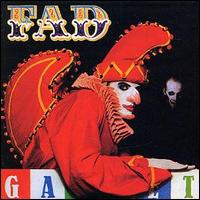 There's a saying something to the effect of "You'll never be as good as your first album," and for Frank Tovey, his second Fad Gadget record doesn't make a good argument against that statement. In 1981, Tovey seems to have been trying to distance himself from the electro domination that prevailed throughout his first singles and much of Fireside Favourites. Depeche Mode were graduating from opening for Fad Gadget to headlining their own shows, and Mute was being recognized as a home to many synth-dominated acts. Tovey made choices that may have suited him right at the time but years later I don't think they hold up so well.
There's a saying something to the effect of "You'll never be as good as your first album," and for Frank Tovey, his second Fad Gadget record doesn't make a good argument against that statement. In 1981, Tovey seems to have been trying to distance himself from the electro domination that prevailed throughout his first singles and much of Fireside Favourites. Depeche Mode were graduating from opening for Fad Gadget to headlining their own shows, and Mute was being recognized as a home to many synth-dominated acts. Tovey made choices that may have suited him right at the time but years later I don't think they hold up so well.
Mute
It's important to note that between Fireside Favourites and Incontinent came a single for "Make Room." It featured live drumming from Wire's (then ex-) drummer, Robert Gotobed, Wire friend Desmond Simmons on synth, and a slapping funk bass riff contributed by Pete Balmer. The song leaned more in the direction of electro-funk than that of synth-punk, and didn't leave nearly as much an impression on the fans, critics, and history as the B-side, the seminal "Lady Shave." "Lady Shave" was clearly the more bold side. It more closely resembled the early Fad singles, but, regardless of the instrumentation, the song was an attack: it was aggressive, dirty, catchy, and unavoidable. I mention the importance of this song as it seems like such a poor choice to relinquish such an awesome feat to the B-side. To me, this is the choice that sets Incontinent up for mediocrity.
One of the most unfortunate perils of British music is that the fickle press seems to have had an unfair influence on decisions of bands and record labels. Just as soon as acts like OMD, Human League, Gary Numan, or Soft Cell were "in" for being synth acts, they were "out," and most were changing their sound in the early '80s to either prove that they could create music by (needlessly) adding excessive amounts of more traditional rock instruments or cave in to record executives who wanted them to "update" their sound to a more commercially viable "pop." (This is a repeating cycle, see: the demise of shoegaze in the early '90s.)
"Blind Eyes" doesn't launch the album with a very bold statement. The funky bass, piano, hand claps, and live drums, are all mixed so homogenously dead center, and Tovey's vocals blend in so much with the colorless tapestry that they too sound almost completely void of personality.It certainly doesn't sound representative of the Fad Gadget who was introduced to the world, launching himself off bars and engaging everyone. Even the song "Swallow It," which is a fantastic song on paper (it's got a great riff and audacious lyrics), sounds rather flat.
"Saturday Night Special" is pure genius, however, it sounds unlike anything Tovey did before or after. The song, a waltz with harpsichord providing the bulk of the instrumentation, either gets its name from the common slang for a small, cheap handgun, or perhaps it is a nod to the Lynyrd Skynyrd song with the same title. It features some of the most memorable lyrics ever penned by Tovey and is this album's jab at America:
"Every man should have the right to own a gun
Every man should have the right to shoot someone.
Film stars and farmers still forcing opinions like TV politicians playing cowboys and indians."
Despite the setback of having a somewhat flat production like the other songs, "Saturday Night Special" manages to be a breakthrough, as is the closer for side one of the LP, the instrumental title track. This electro gem features some delicious sequencing by Daniel Miller and probably would have made a great B-side to "Lady Shave," which should have not only been an A-side, but was damn good enough to make Incontinent a better record as side one song one. "Manual Dexterity," the instrumental song opening the record's side two, on the other hand, is forgettable enough to have been left as a B-side and off the album.
"King of the Flies," got a remix before being featured on a 7", making it more immediate and less bland, however it didn't make the song any less forgettable. "Diminished Responsibility," on the other hand, screams to be a full-album side, as the nearly six minute piece with drone waves and noises could easily last for another 15 minutes. The album's closer, "Plain Clothes," is almost unlistenable due to the painfully uncomfortably distorted guitar riffing.
Sure, Frank, too wanted to prove that he could record an album loaded with more traditional instrumentation, but it wasn't what he was good at, not at this point. What followed the next year, Under the Flag, thankfully more than made up for the poor decision making that went into Incontinent.
samples:
 
Read More
- Administrator
- Albums and Singles
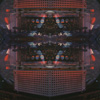 In theory, this doesn't seem like it should not be an especially noteworthy album, as Brad Rose is constantly collaborating with other musicians and has already amassed a vast, Merzbow-esque discography under many, many guises and I am fairly unfamiliar with his foil this time around (guitarist Pete Fosco).  Also, this is already the fourth Concessionaires release.  In reality, however, this duo conjures up one hell of a crushing, synth-heavy futuristic dystopia.
In theory, this doesn't seem like it should not be an especially noteworthy album, as Brad Rose is constantly collaborating with other musicians and has already amassed a vast, Merzbow-esque discography under many, many guises and I am fairly unfamiliar with his foil this time around (guitarist Pete Fosco).  Also, this is already the fourth Concessionaires release.  In reality, however, this duo conjures up one hell of a crushing, synth-heavy futuristic dystopia.
This is one of those extraordinarily rare times in which I fell hopelessly in love with an album within its first 30 seconds, as "Mirrorshades" is a staggering mechanized hellscape from start to finish.  The actual framework is quite simple (just an incredibly dense and ominous two-chord synth pattern), but the relentless pulsing and thumping and fluttering chaos that surrounds it elevates the piece into something both fearsome and mesmerizing. It sounds so disturbed, massive, and inhuman that it is almost impossible to reconcile that it originated from two friends convening for a rare, improvised recording session in Oklahoma.  I can't even guess what Fosco is doing, as nothing sounds even remotely like a guitar, unless he has some pedal that makes his playing sound like a malfunctioning spaceship getting sucked into a black hole and crushed.
Unsurprisingly, Rose and Fosco are not able to replicate that scary triumph six more times, though the lush and brooding "Gazelocked" comes pretty close.  However, they are able to make a graceful transition from "brilliant" and "startling" to merely "excellent."  There are a number of obvious reference points for the rest of the album's aesthetic, like Tangerine Dream's Zeit or Phaedra, Vangelis's Blade Runner soundtrack, or the bleak rumblings of Lustmord, but Concessionaires are different enough from their space music forebears to carve out their own distinct niche.  In some ways, Artificial Interface is a skillful combination/continuation of all three of the aforementioned artists' work: Tangerine Dream's relentlessly repeating patterns; Vangelis' melodic futurism; and Lustmord's enormity and heft.  In other ways, however, it seems new–like contemporary drone music suffused with some serious deep space dread and alienation.  In any case, it is unexpectedly muscular, multilayered, concise, and devoid of any annoying synth noodling (which is something I absolute cannot stand).
While I haven't heard Concessionaires' other three releases, which were only released as very limited cassette editions, I suspect a lot of the focus and success of Artificial Interface is due to the band's new addition: producer Matt McDowell.  By the duo's own admission, this album is the distillation of several hours of long (and occasionally messy) jams, yet it certainly doesn't sound like it.  The only real clue is that each piece is essentially built upon a single motif, though that single motif is usually multi-layered and textured.  Having a talented third party carve away the meandering rise and fall of the improvisations to isolate a few minutes of magic makes all the difference in the world and McDowell seems to have handled that difficult task unerringly: these pieces are sculpted and mastered for maximum impact.  Certainly, some of the pieces are stronger than others (the languid come-down "Flat Pink Octagon" being another highlight), but the better pieces are easily among the best new music that I have heard this year.
Samples:
 
Read More
- Administrator
- Albums and Singles
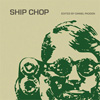 I've grown to expect unusual albums from Daniel Padden and this one did not disappoint me.  Much like Sublime Frequencies and Harappian Night Recordings, Ship Chop is the product of an omnivorous love of indigenous and exotic music from around the world: Padden took his favorite records and turned them into collage pieces that inventively combine previously unrelated cultures and sounds. Most remarkable about the album, however, is how exacting he was with his editing.  This easily could have been a murky and surreal miasma of overlapping recordings, but it isn't.  Instead, this album is surprisingly coherent, sharp, and hook-filled.  While there quite a few shorter pieces that are too brief to be satisfying, the handful of more extended songs are pretty unerringly excellent and it all forms a memorably warped whole.
I've grown to expect unusual albums from Daniel Padden and this one did not disappoint me.  Much like Sublime Frequencies and Harappian Night Recordings, Ship Chop is the product of an omnivorous love of indigenous and exotic music from around the world: Padden took his favorite records and turned them into collage pieces that inventively combine previously unrelated cultures and sounds. Most remarkable about the album, however, is how exacting he was with his editing.  This easily could have been a murky and surreal miasma of overlapping recordings, but it isn't.  Instead, this album is surprisingly coherent, sharp, and hook-filled.  While there quite a few shorter pieces that are too brief to be satisfying, the handful of more extended songs are pretty unerringly excellent and it all forms a memorably warped whole.
The first thing I realized as I listened to this album is that Daniel Padden has excellent and fascinating taste in music, but my second epiphany was that he approached this project in a surprisingly ego-free way.  A lot of the time, his editing is so subtle as to be unnoticeable.  Padden's aim was clearly not to dazzle the world with his clever juxtapositions or inventive layering.  Instead, Ship Chop unfolds like a very eccentric mixtape, recontextualizing many of Daniel's favorite snatches of music to heighten their impact and better illuminate their inherent beauty.  The opening piece ("Various Saints") is initially a perfect example of that non-intrusive approach, as something that sounds like a Chinese funeral march slowly segues into strangely ghostly whooping, but it ultimately morphs into a groove composed of heavily chopped chanting.  The second piece, "Flared Up By Love," is a bit less schizophrenic: it is essentially a repeating male vocal over a simple flute pattern and an African or Indian drum loop.  It all sounds perfectly coherent and natural together, but it is highly likely that none of those individual elements originate from the same country, culture, or time period.
As alluded to earlier, Padden's degree of inspiration is often in directional proportion to song length.  The album's centerpiece is the 9-minute "Dancer's Reverse," which weaves together an eerie kalimba-sounding motif with some of the most tortured and forlorn-sounding strings that I've ever heard (they sound like violins, but anything is possible on this album).  That's only the starting point though, as it eventually cycles through some quasi-religious chanting, rumbling drums, and bizarre cut-up loops.  That kalimba returns again in the album's other clear highlight (the uneasy "Belly of Parchment"), where it is beautifully coupled with blurred and subtly dissonant flutes. The violins come back in a great song too, sounding more tortured than ever in "Rattling Belts."  Notably, that same piece ultimately becomes one of the weirder and more disorienting stretches on the album once the crazed hooting, yelping, and loud false laughter comes in.
It is definitely the darker pieces that resonate most strongly with me, but they wouldn't be nearly as effective if the rest of the album were any less unpredictable and varied.  Padden and his unwitting collaborators cover pretty much the entire gamut of human emotion in just under an hour: joy, pain, celebration, religious ecstasy, humor–it's all here.  The magic lies in how compellingly and inventively Daniel is able to unfold his condensed abstract history of all humanity.  Sometimes the changes are startling and abrupt, but there are also many times where something initially comical or absurd (a strangled bagpipe-esque snippet) is used as the groundwork for something much deeper.  Notably, the album also highlights the fact that much of the music that I would classify as "experimental" these day falls within fairly limited parameters in regards to production, instrumentation, timbre, and the types of scales and melodies used.  Ship Chop sounds quite bold and unique amidst that context.  It has some missteps and compositional flaws, certainly (great parts end too quickly, some transitions are too jarring, etc.), but they don't ever stop the album from being a playful, bizarre, and mesmerizing experience.
Samples:
 
 
 
Read More
- Administrator
- Albums and Singles
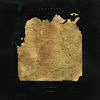 Michal Jacaszek is one of the few contemporary composers around who is able to blend classical themes and instrumentation with digitized noise without sounding forced or unnatural.  It's a very distinctive aesthetic that he has been honing for a decade now and it seems to grow more refined with each new album.  Glimmer doesn't stylistically diverge at all from my expectations, but Jacaszek has made some definite improvements in building textural layers and balancing his characteristic gloom with some warmth and movement.  Those minor tweaks collectively make a big difference, as this might be his finest album yet.
Michal Jacaszek is one of the few contemporary composers around who is able to blend classical themes and instrumentation with digitized noise without sounding forced or unnatural.  It's a very distinctive aesthetic that he has been honing for a decade now and it seems to grow more refined with each new album.  Glimmer doesn't stylistically diverge at all from my expectations, but Jacaszek has made some definite improvements in building textural layers and balancing his characteristic gloom with some warmth and movement.  Those minor tweaks collectively make a big difference, as this might be his finest album yet.
One of the more perplexing problems in my life as a music lover is that I do not like the harpsichord at all, yet a number of great musicians use it for some of their best songs (Joanna Newsom, Colleen, etc.).  Jacascek goes one step further than most, however, as he makes it the very foundation of his sound here.  This puts him at a distinct disadvantage with me and my ears, but his instincts are mostly quite good.  Also, he makes very effective use of both clarinet and acoustic guitar, which helps.  He loses me a bit whenever he starts to approximate morose baroque chamber music, but the album's more abstract, ravaged, and creaking pieces are pretty stellar.  Ruin and decay might be Jacaszek's primary areas of expertise, actually: he seems to evoke them better than practically anyone else.  He is also quite adept at melancholy romanticism, which makes a striking combination.  When he is at his best, it sounds roughly like a zombie Bach and his undead friends are playing a forlorn concerto for the damned with rusted and cobweb-covered instruments.
Michael Gordon ventured into somewhat similar stylistic territory with his disturbing Decasia score, but he was much more aggressive and used teeth-rattlingly detuned instruments.  Jacaszek's work is far more subtle and listenable because he is able to maintain the illusion texturally while still remaining conventionally melodic instrumentally.  There are some great individual motifs strewn throughout Glimmer, like the melancholy overlapping clarinets in "Windhover," or the stuttering Spanish-tinged guitar at the beginning of "As Each Tucked String Tells," but Michal tends to shine brightest  in the shadows and periphery.
For me, the real beauty and genius of this album lies in its submerged-sounding swells, escalating hiss and crackle, odd creaks and echoes, reversed loops, and rare roars of noise.  In this regard, "Evening Strains to be Time's Vast" is probably Glimmer's single greatest piece, as it unfolds in an eerie, slow-burning backwards lurch beneath a languidly beautiful clarinet solo before erupting in a caustic squall of noise.  While that is definitely the album's harshest and most cathartic moment, its brilliant crescendo is not a fluke: Michal achieves a similar degree of roiling brilliance at the end of "Dare-gale."
Obviously, I still wish there was a lot less harpsichord on Glimmer (apologies to guest harpsichordist Margosia Skotnicka).  Personal prejudice aside, it is responsible for too many of the album's rare moments of obviousness or dubious nods to chamber music.  Also, I think Jacaszek errs on the side of sounding too much like a soundtrack composer sometimes.  Literally everything else about this album is wonderful though.  Jacaszek still has some room to grow as a composer, but his textural wizardry as a producer is unimpeachable and I absolutely love Andrzej Wojciechowski's beautifully nuanced clarinet playing.  And I can't fault Jacaszek's vision: he has certainly carved out an appealing niche that is uniquely his own, which is a rare thing.  For all its brooding, gloom, and neo-classicism, Glimmer is a remarkably singular, vibrant, and deep listening experience.
Samples:
 
Read More
- Administrator
- Albums and Singles
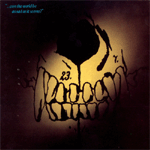 When I first found Throbbing Gristle's live album, I expected it to be the ultimate TG time capsule--preserving TG's live sound for future generations—but the band had other plans.  Rather than a live recording made at a pubic gig, Heathen Earth was a contrived and controlled affair that captured the sound of Throbbing Gristle performing for an invited audience in their studio. Rather than a blistering assault, it played more like a subdued (albeit menacing) jam session. They never made it easy.
When I first found Throbbing Gristle's live album, I expected it to be the ultimate TG time capsule--preserving TG's live sound for future generations—but the band had other plans.  Rather than a live recording made at a pubic gig, Heathen Earth was a contrived and controlled affair that captured the sound of Throbbing Gristle performing for an invited audience in their studio. Rather than a blistering assault, it played more like a subdued (albeit menacing) jam session. They never made it easy.
I picked up a copy of the original CD release of Heathen Earth when I was in college.  I paid little attention to the liner notes when I first scanned through that strange, muddy mess of a record so I had no idea that it was a live recording until sometime later. I was already familiar with 20 Jazz Funk Greats and D.O.A., but I had always treated TG as an act to be revered and appreciated more than truly enjoyed. Drew Daniel's wonderfully exhaustive book on 20 Jazz Funk Greats reignited my interest in trying to understand TG in the context of their time. So, when it came time for me to revisit Heathen Earth through the newly remastered reissue, I jumped at the chance to experience the live sound of Throbbing Gristle anew.
To be fair, Throbbing Gristle's recorded sound was so raw that it often carried about it the noise, imperfection, and energy of a live recording anyway. So if Heathen Earth sounds not so far away from a studio recording as one might expect, well that only makes sense given the constrained conditions under which it was recorded and the unpredictable nature of the artists who wrote and performed it. How fitting for a band that skewered expectations at every turn to release a live album that sounds in some ways more polished than their studio records.
This remastered edition benefits the source material greatly. The remastered mixes feature more stereo separation and a much-improved frequency range.  I hear the difference the most in the low frequencies, as if some of the low mid-range has been carved out of the mixes to provide a little more separation. The mechanized kick drum and bass line in "Something Came Over Me" feel pumped up, while the squealy static noise in "The World is a War Film" sits higher in the mix.  Chris Carter says that he didn't EQ anything during the remaster process in an effort to preserve the sound of the original records, but the revisit on the source material has made a notable difference here.  Everything is just a bit louder too, though thankfully not bashed over the head with the brick wall limiter that might be tempting to apply to a 30 year old, eight track recording.
After all these years, the aspect I find most striking about Heathen Earth is how it defies TG's confrontational image.  The track list seems to be chosen specifically to avoid the freakout energy of tracks like "Hamburger Lady" and "Subhuman," and while Heathen Earth is far from easy listening, it is generally smoother and less difficult than many other TG records. The record's most abrasive moments come early in "The Old Man Smiled" and are then followed by a noisy jam of synth noodles, hisses, and feedback on "Improvisation," the creepy if relatively mellow "The World is a War Film," and the synth-driven "Something Came Over Me," that serves as a blueprint for early Skinny Puppy if ever there was one.
"Still Talking" is built around a simple oscillating synth tone and overlapping layers of tape loops that hint at dark sexual energy without ever exploding into it outright.  "Don't Do As You're Told, Do As You Think" brings TG back to something that sounds more recognizable as a band, but still, the song is little more than a loop that grinds on for seven minutes as the band throws sounds over it before the whole thing comes to an abrupt stop.  Throbbing Gristle ends the set with a bit of ironic humor by bringing the audience out of the performance with the recorded voice of a hypnotist on "Painless Childbirth," and just like that, it's over. The sound of a slide projector advancing slides can be heard in the background, but without the slides or a video or some other reference for the event, I can't help but feel that the record is somewhat limited in its ability to capture the live experience.
This reissue contains a bonus disc of live recordings made at more traditional performances from 1980 and it's here that I begin to get a better sense for how tense and strange a TG performance might have been. The recording quality for most of these tracks is considerably inferior to the material offered on Heathen Earth, but somehow these recordings feel more like being present at a TG gig. "Trained Condition of Obedience" feels almost completely unhinged in a way that nothing on Heathen Earth ever does. "An Old Man Smiled" recorded at Club Berlin sounds radically different than "The Old Man Smiled" recorded back at the Industrial Records studio. On this disc the band is more given to sprawling noise and the pitch black squalls that I think of whenever anyone mentions "Throbbing Gristle" and "Live Show" in the same breath. Maybe all of that just winds up being a product of my own bias, having never seen Throbbing Gristle perform but having had years to imagine what it must have been like.
The bonus disc closes out with the 7" Single versions of "Subhuman" and "Adrenalin," two tracks that couldn't sound much more different and still be contained on the same record. If "Subhuman" represents TG at its most violent and overtly confrontational, "Adrenalin" is decidedly more subversive perhaps because it sounds almost like a proper electro track that some madman has grabbed hold of and added weird shit to. While these two songs don't tell the whole story of Throbbing Gristle, they do a great job of revealing some of the band's strange breadth and general demeanor.
samples
 
- An Old Man Smiled
- The World is a War Film
- The Old Man Smiled
Read More
- Administrator
- Albums and Singles
 Ten years ago this week a heart attack ended Frank Tovey's life. To this day, Fad Gadget has still not achieved "household name" status but Tovey's music continues to have an influence both directly and indirectly on music across numerous genres and ages. This month Brainwashed is going to honor his work by tackling each Fad Gadget album.
Ten years ago this week a heart attack ended Frank Tovey's life. To this day, Fad Gadget has still not achieved "household name" status but Tovey's music continues to have an influence both directly and indirectly on music across numerous genres and ages. This month Brainwashed is going to honor his work by tackling each Fad Gadget album.
For those who don't know thie history of Mute Records, Daniel Miller released a single under the guise of The Normal in October of 1978. He was just a young guy with enough money to record a couple songs, press a 7" single, and distribute from his bedroom. "TVOD/Warm Leatherette" was a hit and for months Miller was flooded with demo tapes from bands he had no interest in who wanted him to put out their records. It wasn't until the following year when he was introduced to Frank Tovey by graphic artist (and now noise artist) Edwin Pouncey (Savage Pencil, Pestrepeller) that Miller decided to release Mute 002."Back To Nature"/"The Box" by Fad Gadget appeared in September 1979, 11 months after Mute 001, and "Ricky's Hand" (coupled with a remix titled "Handshake") followed shortly in February, both produced with Daniel Miller. The punk ethic was being marketed for mass commercialization and Frank Tovey was the perfect marriage of energy and forward-minded technology, he had a fantastic stage presence, and, most importantly, wrote some excellent songs.
For a musical act, the key to transcending the "dated" label is to possess the talent for creating exceptional songs. Forget the technology Frank Tovey employed, and accept that his first two singles, "Back To Nature" and "Ricky's Hand" had the perfect elements: driving rhythm, catchy riff, and unapologetic, non-cliche lyrics. Following the two singles, Tovey expanded his studio lineup and recorded this debut album with the power team of Eric Radcliffe, John Fryer, and Daniel Miller. Although an expanded cast of characters included more traditional instrumentation such as live drums,bass, and guitar, the sound remained faithful to what was established with the first singles.
"Pedestrian" opens side A with a deceptively quiet introduction in the form of an interplay between guitar and a twinkling synth, turn it up loud enough to hear it and suddenly the monster synth sound and hurried rhythm crashes in. This is clearly an example of the energy that Frank channeled as Fad Gadget, and, for something so synthetic, it's sound resembles what could be imagined as live: as Frank almost trips over the lyrics a few times, simply to keep up with the energry of a fast moving song, ironically titled "Pedestrian." Without a gap, the noises from the song's end mutate into the opening for "State of the Nation," a slower tempo popular set opener with an eerie riff and a delicious live drum beat by Nick Cash. "Salt Lake City Sunday" returns to the uptempo feeling from the album opener, and it's a short tune poking fun at Mormons, of course,
"They march, the Latter Day Saints
Salt Lake's sick residents
They want you to repent
The want your ten percent"
It's kind of eerie how 22 years later people are still asking Mormons the same question, and especially now that Mitt Romney is scarily close to becoming a president, "can you leave my ancestors to rot in their graves?"
Another crowd favorite, "Coitus Interruptus" follows, and, if you were either lucky enough to see Fad Gadget live or are able to watch the video here (see 3:31), it becomes painfully clear even Bradford Cox owes his entire live schtick to Tovey!
I can't say I'm as excited about side B. While I enjoy the opener, "Newsreel" and the closer, "Arch of the Aorta," it doesn't have as much soul as the first side. "The Box" was needlessly re-recorded for the album, as it loses all of the power and intensity of the version that graced the B-side of the debut single. "Insecticide" is an fun, tweaky, noisy tune, with squelchy, distorted vocals; and it seems to be an odd choice for a single A-side, as it was coupled with swingy, horn-blaring "Fireside Favourite," (as Side AA of the single) from the end of the first side. Given the 7" didn't come with a classic picture sleeve, it could have easily been a record label choice, but "Coitus Interruptus" would have clearly made a better hit single.
It's important to note that while it wouldn't be uncommon to hear Fad Gadget music played in a set with Human League, Kraftwerk, or Gary Numan songs, however the sound is where the similarities end. Tovey's approach was different: he didn't incorporate technology in the same way. Frank Tovey used synthesizers because he found them to be his best resources as the one-man show he started out as. He didn't distance himself from his audiences by either assuming a the role of a robot nor an emotionless alien. As Fad Gadget, Tovey engaged with the people–hanging from rafters, leaping into the crowds, tar-and-feathering himself, shaving himself onstage, suffering head injuries, and bleeding–making a genuine show of his live performance. Additionally, his subject matter was clearly not a grim painting of a horrific science fiction future (note that his first single was titled "Back To Nature").
In a time where technology was making new forms of music possible, Frank Tovey chose to keep as much control over it, keeping it as human as possible. Those who still aren't convinced only need tolook at the cover for Fireside Favourites, it's not a display of technology, it's a photo of Frank singing live!
samples:
Read More



